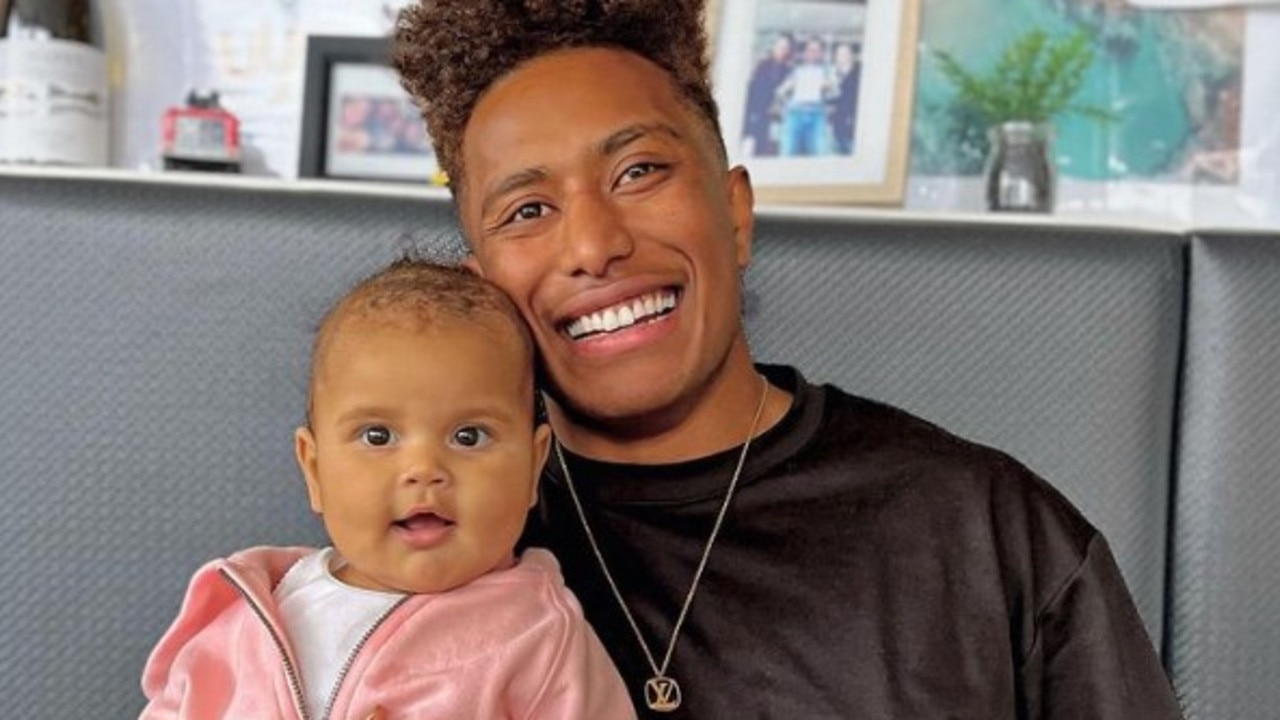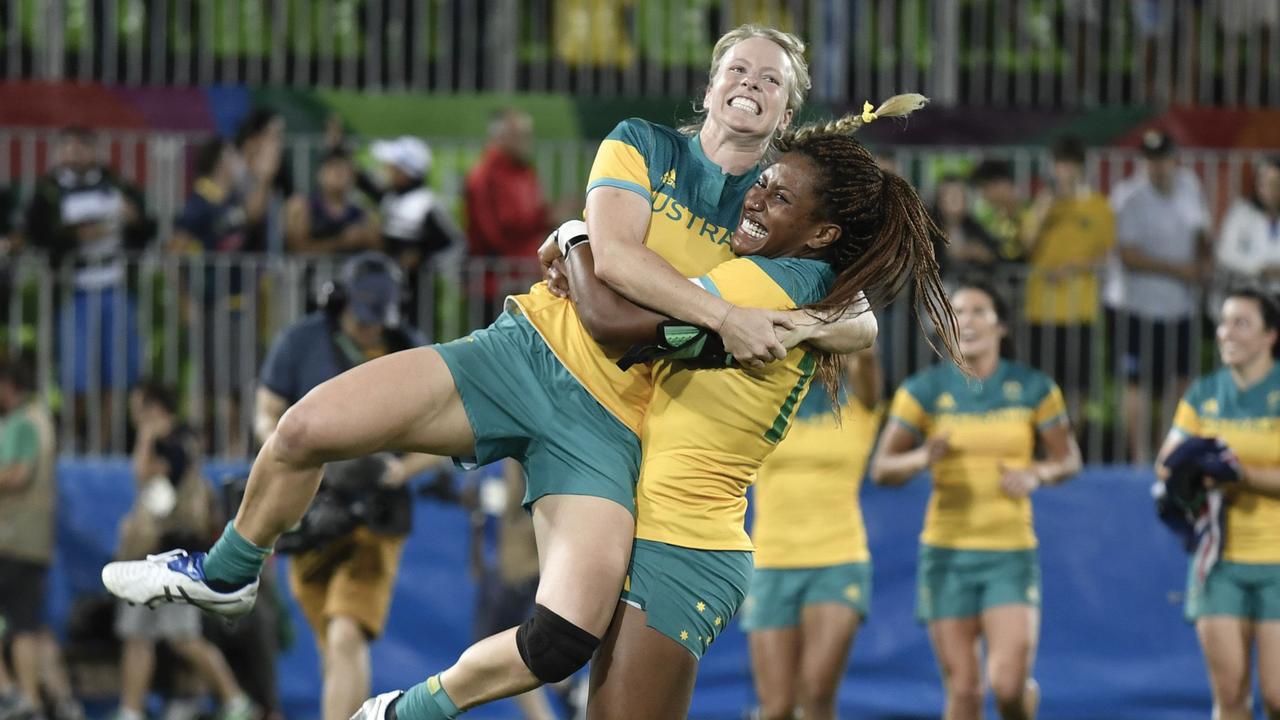Aussie Olympian Ellia Green opens up about transitioning to a man
An Australian Olympic gold medallist has spoken publicly for the first time about transitioning to male, a promise he made to himself when his career ended.
Australian Olympic gold medallist Ellia Green has transitioned to male and condemned the “disgraceful” banning of transgender people from sport.
Green, who is now retired, played professional Rugby Sevens for about 10 years and was one of the stars of Australia’s gold medal-winning women’s Rugby Sevens team at the 2016 Rio Olympics.
He came out publicly as a transgender man in his opening address to the Bingham Cup International Summit on ending transphobia and homophobia in sport on Tuesday in Ottawa, Canada.
The Bingham Cup is the biennial world championships of the gay and inclusive rugby community.
The video was also shared on YouTube, which reported Green was the first Olympian to come out as a transgender man.
Green said he made a promise to himself that when his rugby career ended he would live the rest of his life in the body he knew he was meant to be in.

When he wasn’t picked of the Tokyo Olympics, Green said he felt like a “complete failure”.
“I really took it as a reflection on my whole self as a person, so I was unable to leave the house,” he said.
“But the one thing that kept me positive was the fact that I had planned my surgery, my top surgery, and it was something that I had been literally counting down the days with my beautiful partner.
“I just knew I was going be the most liberating feeling when I had that surgery and started to take the steps towards being in the body that I know I am meant to be in.
“So that was definitely something that was a bright spark in my mind during this dark time.”

Green said transitioning was “really stressful” and people would ask many questions, rather than accepting it.
“I think some people take it as almost like you’re saying you’re an alien, just because you are not fitting into the social norm of being male or female,” he said.
Green wanted others with a similar story to know that things did get better.
He said it had taken a lot of courage to speak so openly and he had concerns of what people would say, that he would be treated differently or loved less by his family and friends.
“The thing is, even without changing genders, changing appearance, identity, people are always going to have something to say, whether that be positive or negative,” he said.
“I learnt that in 10 years of being a professional rugby player. So why not just live the rest of your life exactly as you want to be because life is just too short to live it as something else, and you are beautiful.”
Green also voiced his opinion on excluding transgender people from sport.
“Imagine not being able to do what you love because of how you identify. Banning transgender people from sport I think is disgraceful and I think it’s hurtful,” he said.
“The rates of suicide and mental health (issues) will get even worse.”
Last month, the International Rugby League banned players who transition from male to female from playing in sanctioned international events until further research is conducted, ruling them out of this year’s World Cup in England.
More Coverage
It came after swimming’s governing body the International Swimming Federation announced it plans to become the first sport to set up an “open category” to allow transgender athletes to compete in a separate class.
According to FINA’s new policy, male competition would be open to all but male-to-female transgender athletes and intersex athletes can only compete as female athletes in FINA competition, or set a world record, if they can prove they have not experienced any element of male puberty.
Last year, the International Olympic Committee said it would not set competition criteria for intersex and transgender people and passed the decision on to individual sports’ governing federations.






